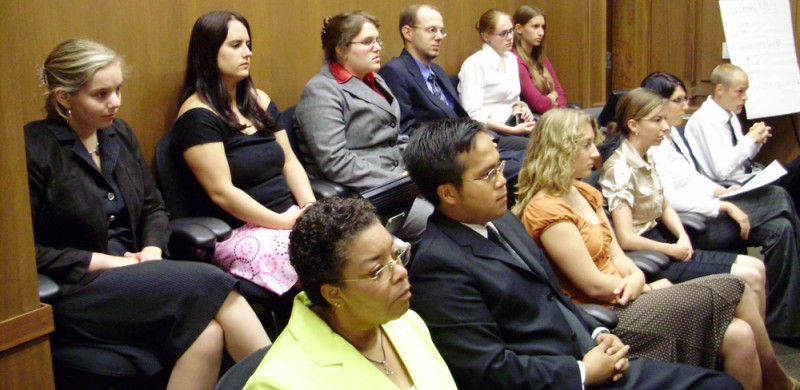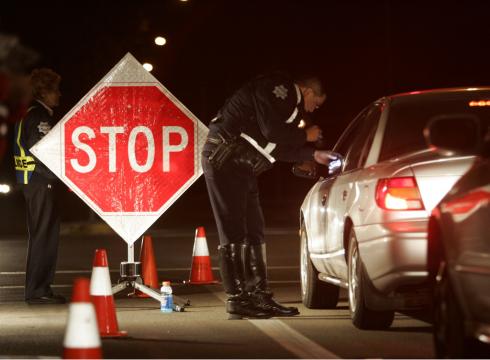
Nov 25, 2014 | Criminal Defense Attorney Michael Komorn, Michigan Medical Marijuana Act, Planet Green Trees Radio
A jury trial is fundamental to our democratic system of government. Every American citizen should embrace this responsibility by participating, and ensure justice prevails.
by Michael Komorn
I just picked a jury in a marihuana case, there were several perspective jurors who were excused, who will not sit on our jury because of the answers they gave during the jury voir dire. This is not the first time this has happened.
If you believe in medical cannabis, and or that Marijuana should be legal and you find yourself on a jury in a marihuana case here are some things to remember:
During the Jury Selection, you will be asked if you can put your personal or philosophical feelings aside, and be fair to both the prosecutor and the defense.
During the Jury Selection, you will be asked if despite your beliefs you will follow the law as it is given to you, and apply the facts to the law when you deliberate.
These are common question asked during the jury selection also known as voir dire, with the overall goal of the process to select persons who will put aside there personal beliefs, as the Judge will direct , and render a just verdict.
The same questions are asked to prospective Jurors, who have family members or relatives who are police officers, ie Madam juror despite being married to the Chief of police for 25 years and despite the fact that your husband is a police officer, will you be able to put that fact aside and be fair to the defendant in this case.
10 out of 10 times the answer of the Police Chief’s wife will be yes. I can follow the law, and will follow the instructions that the Court gives me.
Please note that the Police Chiefs wife’s answer allows her to stay on the jury.
Unfortunately as we saw today, from the many prospective jurors who were asked if they could be fair in our case involving marihuana, the answer ” no, I could not be fair because I could never convict someone of a marihuana charge” had them removed for “cause”, and they did not even have a chance to sit and judge the case.
Or said another way the ideal person who should be on our jury will not be. As they were excused from the jury box, and exited the court room, I could not help but think to myself, that I bet they really could be fair in this case, that they really could follow the law as the Court instructed them, that they could apply the law to the facts of the case, and also put aside whatever beliefs they had about marihuana to render a just verdict.
We all have biases, beliefs and preconceived ideas of the world, anyone who participates in the jury process is asked to put those feelings aside, and listen to the specific facts of the specific case, which will not come until after the jury has been selected. Those who are against marijuana prohibition should be more open minded and objective in their answers, just as any other perspective juror would be.
Unfortunately the answer “I could never convict a person for marihuana because it should be legal” actually has a serious and negative effect on the fairness of the trial. ”
If the wife of the Police Chief can sit on the jury, and put aside the stories she has heard at dinner every night for her entire marriage, then so can those who oppose marihuana prohibition. If she can follow the law, be fair and render a fair verdict, then so can those who oppose marihuana prohibition. The distinction here is in the semantics and the desire to render a just verdict by participating in the jury trial process. The issue is not what you believe but whether you can be fair. Being fair means listening to the evidence and rendering a just verdict. So to all of you, who believe in ending marihuana prohibition, remember there is a time and place for that discussion, and it is not during a jury selection. Despite your convictions, remember being on a jury is the quintessential American experience, embrace it, be one with it, put your beliefs of the world aside, and tell the court you can be fair. Your roll in all this chaos will be better served having you sit and be that juror who can render justice.
If you or someone you know is facing charges as a result of Medical Marijuana prescribed to you as a Medical Marijuana patient under the Michigan Medical Marijuana Act, contact Komorn Law and ensure your rights are protected.
Michael Komorn is recognized as a leading expert on the Michigan Medical Marihuana Act. He is the President of the Michigan Medical Marijuana Association (MMMA), a nonprofit patient advocacy group with over 26,000 members, which advocates for medical marijuana patients, and caregiver rights. Michael is also the host of Planet Green Trees Radio, a marijuana reform based show, which is broadcast every Thursday night 8-10 pm EST. Follow Komorn on Twitter.

Nov 19, 2014 | Blog, Criminal Defense Attorney Michael Komorn, Komorn Law Blog, Macomb County Criminal Defense Attorney Michael Komorn, Marijuana Criminal Defense Attorney Michael Komorn, Medical Marijuana Attorney Michael Komorn, Michigan Medical Marijuana Act, Michigan Medical Marijuana Association, Michigan Medical Marijuana Criminal Defense, Michigan Medical Marijuana Criminal Defense Attorney Michael Komorn, Planet Green Trees Radio, Supreme Court Ruling
The best resource for everything related to Michigan medical marijuana with your host Attorney Michael Komorn. Live every Thursday evening from 8 -10 pm eastern time.
By Michael Komorn
The Michigan Supreme Court issued a unanimous opinion making a finding that Michigan Medical Marihuana Patients are protected against the charges of “any presence of a controlled substance” and requires evidence.
(Related: Top 10 Health Benefits of Marijuana, Part 1)
Tonight Steve Elliott, who owns and edits the independent cannabis blog TokeSignals.com, is marijuana reviewer for the Seattle Weekly, is editor of Hemp News, is National News columnist for Northwest Leaf Magazine, and is author of The Little Black Book of Marijuana.
Also spot light on organization Michigan Compassion which is the state’s only federally recognized 501(c)3 nonprofit dedicated solely to Medical Cannabis Education and Advocacy. The organization is one of only four in the country to be granted this nonprofit status.
(Related: The Top Health Benefits of Marijuana, Part 2)
Discussion on the Supreme Court decision on People v Koon, The Redden case and how it was resolved, today’s House Judiciary hearing on medical marijuana distribution in Michigan.
(Related: Stoned Driving the Focus at NORML Conference)
If you or someone you know is facing charges as a result of Medical Marijuana prescribed to you as a Medical Marijuana patient under the Michigan Medical Marijuana Act, contact Komorn Law and ensure your rights are protected.
Michael Komorn is recognized as a leading expert on the Michigan Medical Marihuana Act. He is the President of the Michigan Medical Marijuana Association (MMMA), a nonprofit patient advocacy group with over 26,000 members, which advocates for medical marijuana patients, and caregiver rights. Michael is also the host of Planet Green Trees Radio, a marijuana reform based show, which is broadcast every Thursday night 8-10 pm EST. Follow Komorn on Twitter.
https://www.youtube.com/watch?v=PKX-p3J57GU

Nov 19, 2014 | Criminal Defense Attorney Michael Komorn
Polygraphs are widely recognized as unreliable yet police still use them to elicit confessions.
By Michael Komorn
Many states don’t allow polygraph test to be admitted in court because they are unreliable. Their lack of reliability is widely recognized by criminal justice professionals yet police agencies continue to use them.
(Related: Drug Legalization Called for by Ex-policeman, GOP Lawmaker at Rochester Town Hall)
Polygraph machines measure particular physical qualities and responses, specifically patterns in your heart rate. As questions are read, the test administrator analyzes these patterns and reportedly determines whether you are telling the truth or not.
There have long been doubts to the reliability of these tests. As a result, several states (New York, Illinois, Pennsylvania, D.C.) do not allow polygraph test results to be admitted in court at all. Other states including California, Arizona, Florida, and Georgia, allow the results to be used both only if everyone agrees to them and with different disclosures being required about their fallibility.
(Related: Marijuana Rapidly Grows In Favor With U.S., While Obama Remains Rigid)
McClatchy has conducted a recent investigative report which revealed additional problems with polygraph testing — in the equipment itself. One machine is said to be delivering inaccurate results and glitches that cause some measurements to change completely.
All the while, some police agencies still use the tools during the investigative phase of the test — even in those states where the results would be inadmissible under the rules of evidence. And not to determine whether you’re telling the truth, but to elicit a confession from you.
According to the McClatchy investigation:
Despite the scientific skepticism, intelligence and law enforcement agencies see polygraph as useful in obtaining confessions to wrongdoing that wouldn’t otherwise be uncovered. Fifteen federal agencies and many police departments across the country rely on polygraph testing to help make hiring or firing decisions. Sex offenders and other felons often undergo testing to comply with probation or court-ordered psychological treatment. Police detectives and prosecutors rule out criminal suspects who pass and scrutinize those who don’t.
(Related: Boston Marathon Bombing Terrorism Police Storm Into Homes of Marijuana Growers)
“We’re talking about using a procedure that has a very weak scientific foundation and making it worse,” said William Iacono, a University of Minnesota psychology professor and polygraph expert. “I already don’t have very much confidence in how government agencies conduct these tests. Now, they might as well be flipping a coin.”
Cop tactics would place you in an interrogation room alone — much longer than necessary — to use the polygraph as a psychological tool in police work. The bright side? You don’t have to take one!
Whenever you are questioned about a crime, you should exercise your right to have an attorney present. Police departments have been playing mind-games for decades. Ensure your rights are protected and have an expert on your side.
Recognized as a leading expert and Michigan criminal defense attorney, Michael Komorn’s perspectives have appeared throughout the news, including: The Detroit News, Detroit Free Press, WWJ Newsradio 950, WJR-AM, The Oakland Press, WJRT-TV, WDET-FM, WMYD-TV 20 and Michigan Lawyer’s Weekly.
Read more: http://www.experiencedcriminallawyers.com/polygraph-evidence/?goback=%2Egde_139621_member_245105260

Nov 19, 2014 | Criminal Defense Attorney Michael Komorn, Michigan DUI Criminal Defense Attorney Michael Komorn
By Michael Komorn
Arrests for DUI’s have been on the rise across Michigan. This trend could drastically increase as The National Transportation Safety Board (NTSB) has called on state authorities to reduce the legal limit to 0.05 percent. Currently, all 50 U.S. states have a blood alcohol content (BAC) limit of 0.08 percent for drivers aged 21 and over. To see a map of DUI arrests made by county in Michigan, please click the link below.
If you or someone you know has been arrested for a DUI/DWI, contact Komorn Law and ensure you have the best legal team on your side.
http://www.mlive.com/news/index.ssf/2013/06/searchable_database_see_how_po.html
further reading:
http://www.mlive.com/news/index.ssf/2013/06/mlives_new_dui_analysis_how_th.html

Nov 19, 2014 | Criminal Defense Attorney Michael Komorn

Federal Judge Applies GPS Ruling To Drug Dog Traffic Stop
By Michael Komorn
Last week, a judge with the US District Court for the Southern District of West Virginia applied the precedent to the common police practice of “permeation” where a police officer enters a suspect’s vehicle without warrant or consent to facilitate a drug dog sniff of the car’s exterior.
In January 2012, Justice Antonin Scalia penned the United States v. Jones decision that held attaching a GPS tracking device without a warrant was not permissible.
(Related: God Doesn’t Care If You Smoke Weed)
“The government physically occupied private property for the purpose of obtaining information,” Justice Scalia wrote for the unanimous court. “We have no doubt that such a physical intrusion would have been considered a ‘search’ within the meaning of the Fourth Amendment when it was adopted.”
This finding was reiterated with a decision by the Supreme Court in March, again authorized by Justice Scalia, ruling that a police officer could not use a drug dog on the porch of a home without a warrant.
(Related: Michigan Attorney General Bill Schuette Obsessed with Marijuana)
These recent decisions came to the forefront when Marcus Wyn Taylor was pulled over after making an allegedly unsafe turn to his home in a Charleston, West Virginia public housing project at 6pm on October 24, 2012. Charleston Police Corporal Owen Morris suspected Taylor of being a drug dealer because he had recognized the man sat on his porch “at all hours of the day and night.”
The officers approached the car and noted that Taylor seemed nervous. Taylor asked if he could speak to his lawyer, but the officers refused. When Taylor opened the glove compartment to retrieve his license and registration, Detective Daniels caught a glimpse of an unknown amount of cash.
Taylor was ordered out of the Buick, and he asked again to speak to his lawyer while refusing to consent to a search of the car. Taylor was handcuffed for “aggressive behavior.” A drug dog was called in, as about twenty local residents gathered to watch the spectacle.
(Related: Medical Marijuana Laws Do Not Increase Teen Use)
“One must take into consideration as well Mr. Moore’s appearance on the scene and his uncooperativeness, and a growing crowd from which at least a couple of hostile utterances were heard,” Judge Copenhaver ruled. “The stop was not prolonged beyond the time reasonably required to complete its mission under the circumstances faced by the officers.”
Although no actual drugs were found, there was a FN Five-seveN semi-auto pistol under the driver’s seat and $93,157 in the trunk. Taylor was arrested for being a felon in possession of a firearm.
Had the dog not alerted, Taylor would have been sent on his way. The judge found the entry into the Buick to be a constitutional violation.
“As in Jones and Jardines, law enforcement physically occupied private property — the Buick — for the purpose of obtaining information — the otherwise undetectable, or less easily detected, odors of controlled substances — found therein,” Judge Copenhaver ruled. “Probable cause was lacking for that unreasonable search. The search thus transgressed the Fourth Amendment.”
If you or someone you know is facing felony charges in Michigan,, call an expert at 800-656-3557 and get the defense you need.
Read more: http://www.thenewspaper.com/news/41/4107.asp?goback=%2Egde_139621_member_243670149

Nov 19, 2014 | Criminal Defense Attorney Michael Komorn
By Michael Komorn
The Supreme Court ruled in City of Indianapolis V. Edmund that drug check points are unconstitutional. So what happens when you see one on the highway? Keep calm and carry on. Police, especially in the Mid-west, have been using drug check points as a trap to seek out drivers who make illegal U-turns or discard items from their vehicles. It is also recommended that you do not pull over at the next highway rest stop unless you want your car surrounded by drug dogs. If you are stopped or arrested at a drug checkpoint contact an attorney to determine your legal options. Note: DUI check points are legal, but if stopped and arrested, you still have rights. Officers use DUI check points to briefly detain you to check your licenses and tags and give themselves a brief opportunity to glance into your vehicle and smell for alcohol. If stopped at a DUI check point, officers DO NOT have the right to search your vehicle unless they have probable cause or your consent. Always remember to ask the officer if you are being detained or if you are free to go. Your legal options once in court are more constricted if you consented to a search.







